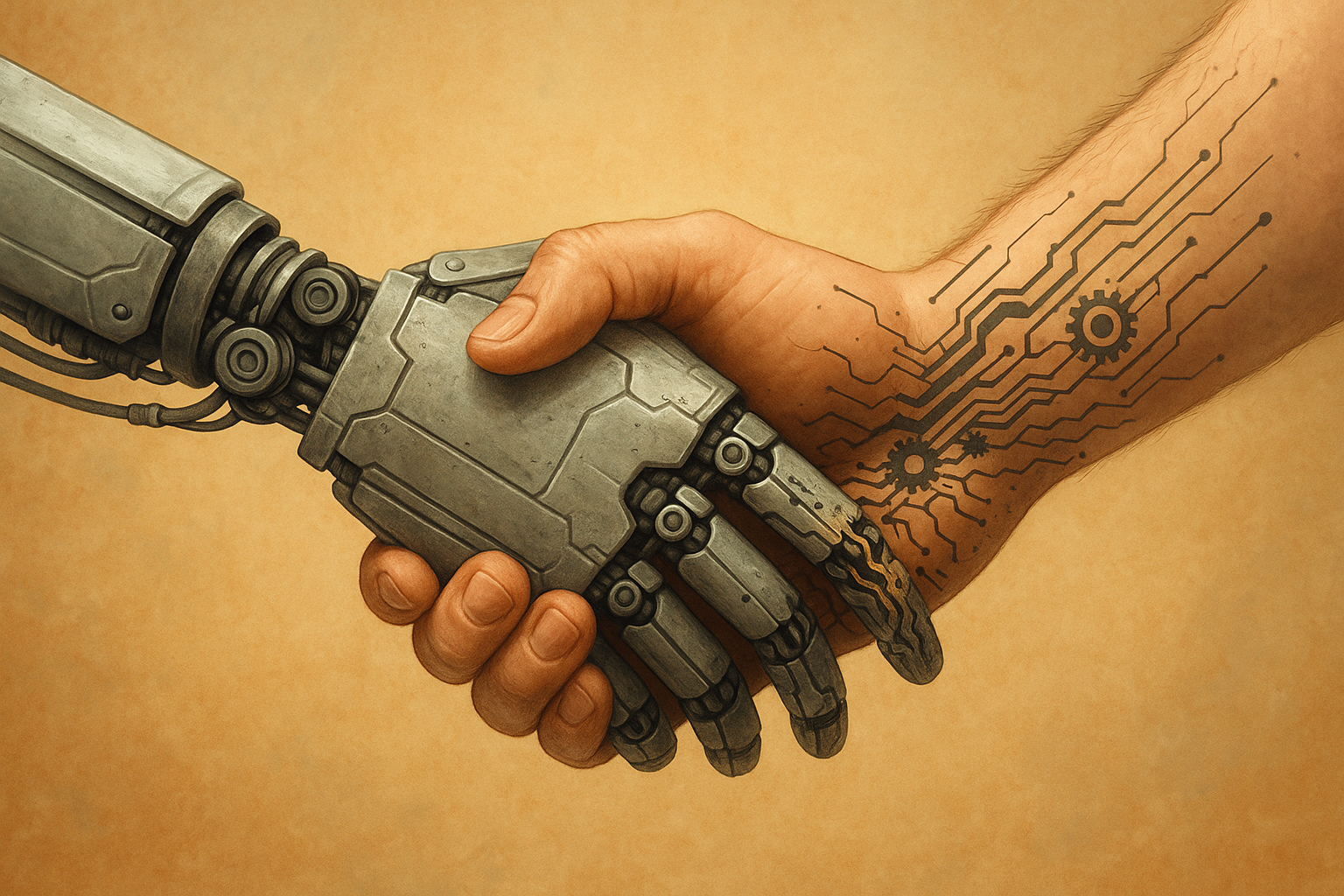A new article in Psychosis contends that the mental health field has learned to speak the language of lived-experience participation while leaving psychiatric and academic authority essentially unchanged.
Lars Veldmeijer of NHL Stenden University of Applied Sciences and Jim van Os of Utrecht University Medical Center introduce a concept they call “participatory assimilation” to describe what happens when people with lived experience are invited into design and research, only to see their perspectives absorbed into preexisting expert frames.
“Participatory assimilation is the practice of involving individuals with lived experience in design and research processes, often because it is mandated by policy or funding, insofar as their perspectives and contributions can be integrated into or are supportive of researchers’ preconceived, theory-driven problem definitions and solution strategies,” the authors write, adding:
“What once started as a strategic and meaningful attempt to include the voices of minority and marginalized groups, such as service user and survivor accounts, has now transformed into a rhetoric where participatory buzzwords are commonly used in research and innovation publications, but have lost their original meaning.”
Participation is now widely required by funders and policymakers. Yet the authors suggest that the field often “talks the talk” without “walking the walk,” leaving lived-experience contributors treated as data points, rather than co-owners of knowledge or decision-making.
“Therefore, instead of being engaged as legitimate epistemic agents, people with lived experience are enlisted as useful data points that validate the researchers’ goals.”
In communication with Mad in America, the first author, Lars Veldmeijer explained the significance of their work this way:
“Participation without power is performance. We introduced participatory assimilation to describe how lived-experience voices are welcomed initially and then absorbed into the dominant frame, an all-too-common outcome. Our aim was practical: move from box-ticking co-design to genuine power-sharing where lived-experience colleagues are decision-makers and power is mapped throughout. That’s how innovation in mental health care, our ultimate goal, becomes accountable – and humane.”
















In a larger scope than just psychiatry, I think this is actually the most pervasive, destructive problem in society today.
People say the right things about respect and rights and inclusion, but never actually let it change them and their worldview. They think talking the talk IS walking the walk. They say they support trans rights, then turn right around and mock nonbinary people and support bans for children to get transition support and don’t do a damn thing when the government basically comes right out and says it wants to track down, round up and kill all of us.
Too many people think they can get a pass for saying the right things, but actions speak louder than words, and their actions say they’re either nazis, or don’t actually care if they act like one.
Also, yet another reason why psychiatry must be abolished. This is what happens when you give “academics” (massively inflating people’s egos with Dunning-Kruger expertise) the power to deny or validate a person’s entire self, personality, behaviours, and life story. They will absolutely use it to deny, when it defends the legitimacy of psychiatry.
It’s that quote about it’s nearly impossible to get a person to understand something when their livelihood is dependent on them not understanding it.
As long as psychiatry exists as a profession, those who practice it will be left with a conflict of interest if they actually listen to people and realize that liberation is the answer. “Professionals” would risk losing their precious prestige, their social status as a hero, their enormous power over their victims, the support of the psychiatric hegemony, their income, it would mean realizing their “expertise”, all their years of “education” were all bullshit. It would mean realizing thst they’re not actually real scientists or doctors and have just been cosplaying to the end result of torturing their victims.
It’s a lot, and most psychiatrists I think get into the profession because they’re genuinely just evil cop types (evil cop is redundant) who are attracted to a prestigious, idolized “heroic” profession with near total authority to do whatever they want to their wards with no accountability or oversight.
Even when people really do try to critically examine psychiatry, so long as they only do so from within the psychiatric profession, it will never really go anywhere.
We should not be cooperating with psychiatry, we MUST abolish it, violently if necessary. Because it is doing violence every day that goes unpunished. Any answer to it that isn’t full abolition is openly permitting the torture and death of people you are implicitly admitting you consider less important than you.
This is the biggest problem in society. People talk about liberation but only attempt cooperation while the people they claimed they would fight to protect die by the dozens while they watch. And they just let it happen because they have been made to believe that challenging power must only be done nonviolently, because they have no idea what the fuck nonviolent actually means.
It is a form of violence to cooperate with violence. Why negotiate with a mass murderer? They absolutely do not deserve it. Psychiatry is doing genocide on a level only surpassed by Israel right now.
How about you come tell me to my fucking face why psychiatry should not be violently destroyed? How about you come tell me why negotiating with literal professional raping murdering terrorists is more important than preventing the next child from being forced on antipsychotics? How about you go tell every person who was lobotomized this year how you’re doing such great work to help them and their rights?
Any approach to psychiatry that is not full abolition is you giving permission for them to rape and torture and kill more people because you consider the “professionals” and a “peaceful” status quo more important than the innocent lives of the tortured.
This was a rant of a comment but this article (if I could read it) is yet another open acknowledgement of how psychiatry is incompatible with liberative justice because it is THE problem, and no practicing psychiatrist can properly seek justice or even recognize it from within the system.
And this terrible website will only actually be about social justice when it stops listening to fucking psychiatrists, and, like I hope this article suggests, listens instead to all the survivors begging for the whole thing to be burned to the ground. INSTEAD, not in addition to.
PETITION TO TAKE THE “SOCIAL JUSTICE” OFF THE TAGLINE OF THIS WEBSITE BECAUSE IT IS A BLATANT HARMFUL LIE.
[Edited by moderator for violations of posting guidelines]
Report comment
In a world where crime is king, everyone starts looking like a nazi.
Most large criminal organizations have become diabolically violent, so most large anti-criminal organizations feel they must also rise to this level of violence.
In ancient times this was considered vaguely acceptable, because human life was not considered that important, and violence was seen as fun.
And now you consider the “violent abolition” of Psychiatry. Does that make you a criminal? Or an anti-criminal? I’m not sure I see the difference.
If we don’t find a way out of criminal behavior, we will inevitably become immersed in it. And that would not be the road to true freedom, or “liberation.”
I see most violent “liberation” movements as just another form of criminal operation. Non-violent “liberation” is the only path out of crime. And it is now a choice we have here on Earth. A very rare choice, really, in the history of Life.
Psychiatry is not assisting us with this, of course, and it really should be. It was a deceitful operation from the beginning. But good luck at abolishing it. What we need to do is learn to ignore it.
Report comment
So you see the terrible injustices of it all–where do you think the answer lies? I am not in favour of “ignoring it” as Larry Cox suggests, since the lay public has no idea where to turn when they are confronted with someone who appears delusional and/or dangerous. My late husband was working on this problem and his approach was to look at the history of psychiatry and indeed, of “psychosis” itself. What we must do is to root out where this all started and what caused it. (I am writing an essay on the subject). If we don’t know the cause, we will never convince those concerned that “mental illness” is a myth! We need dedicated scholars to study the problem. Railing against the current system will not affect it significantly!
Report comment
Learning to ignore Psychiatry would include educating the “lay public” on what to do when confronted by a “dangerous looking” person. We have a “mental health care” system that is much bigger, though, than Psychiatry. It has to learn to ignore Psychiatry, too. A lot of psychologists are already very wary or upset about how Psychiatry operates. But they don’t want to handle the “dangerous” people, either. Someone has to.
Root out where this all started? That’s a big job, and a spiritual job, as it didn’t start with humans on this planet. Psychiatry has been around for a VERY long time in various forms. Did I lose you with that? Most people don’t want to go down that road, but that’s where the research led me.
Report comment
Reminds me of how the corporate world took over pop music.
The internet gave music and the arts a new life, but Corporate controls the internet.
Corporate is an extremely hungry entity. And it will not easily be swerved off course. It seeks to maintain control while the public becomes more and more aware of how it works and who is involved. So it has had to become more and more clever at disguising itself.
Report comment